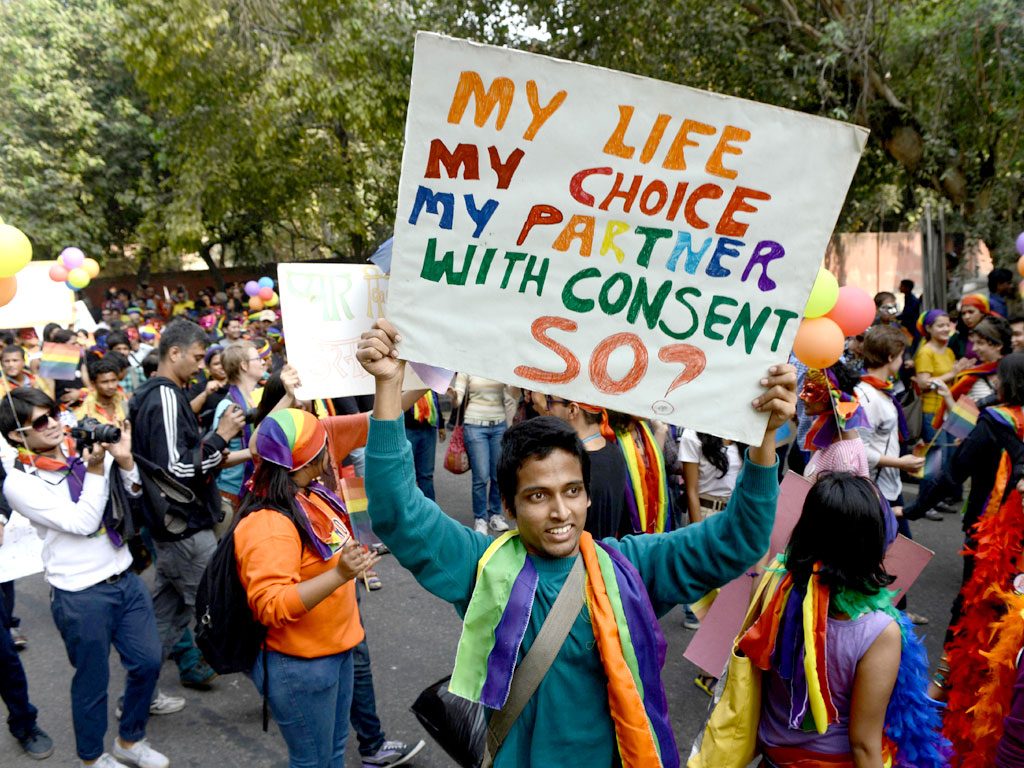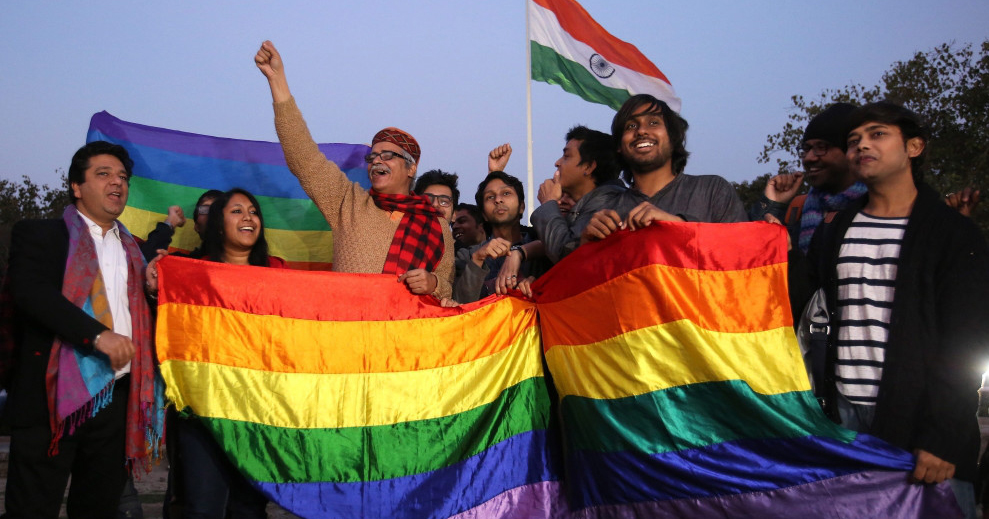The statute which criminalises male same-sex assignations, Section 377, bans “carnal intercourse against the order of nature with any man, woman or animal”, and is punishable by life imprisonment, reports The Guardian.
On Monday, January 8, it was announced that a large group of justices would convene to reconsider the law, following a petition by five LGBT+ people who say they are living in fear of being prosecuted. As yet, no date has been fixed for a hearing.
The Supreme Court said Monday that while choice can’t supercede the boundaries of law, neither should laws curtail the inherent right to the freedom granted to individuals by the Indian Constitution, reports The Washington Post.

Section 377, is a 158-year-old colonial-era law under which a same-sex relationship is an “unnatural offence” and punishable by a 10-year jail term.
In 2009, a New Delhi High Court declared Section 377 unconstitutional but the judgment was overturned four years later by the Supreme Court, which stated that amending or repealing the law was a matter for parliament, not the High Court.
Activists say that Section 377 is seldom used to convict men (with fewer than 200 being convicted under the law in 2013), being more frequently used to blackmail and intimidate LGBT+ Indians.
Indian LGBT+ activist Aditya Bondyopadhyay told The Guardian that it was clear the court had been ‘bothered’ by its earlier judgment upholding the ban and had been looking for “an opportunity to correct it”.
“There has been so much criticism of the judgment and mobilisation on the ground and acceptance levels have gone up by a lot [despite] the conservative forces in the ruling party,” he said.
The lawyer for the 5 petitions, Arvind Datar, says the legislation was unconstitutional because it relates to the prosecution and sentencing of consenting adults.
© 2018 GCN (Gay Community News). All rights reserved.
